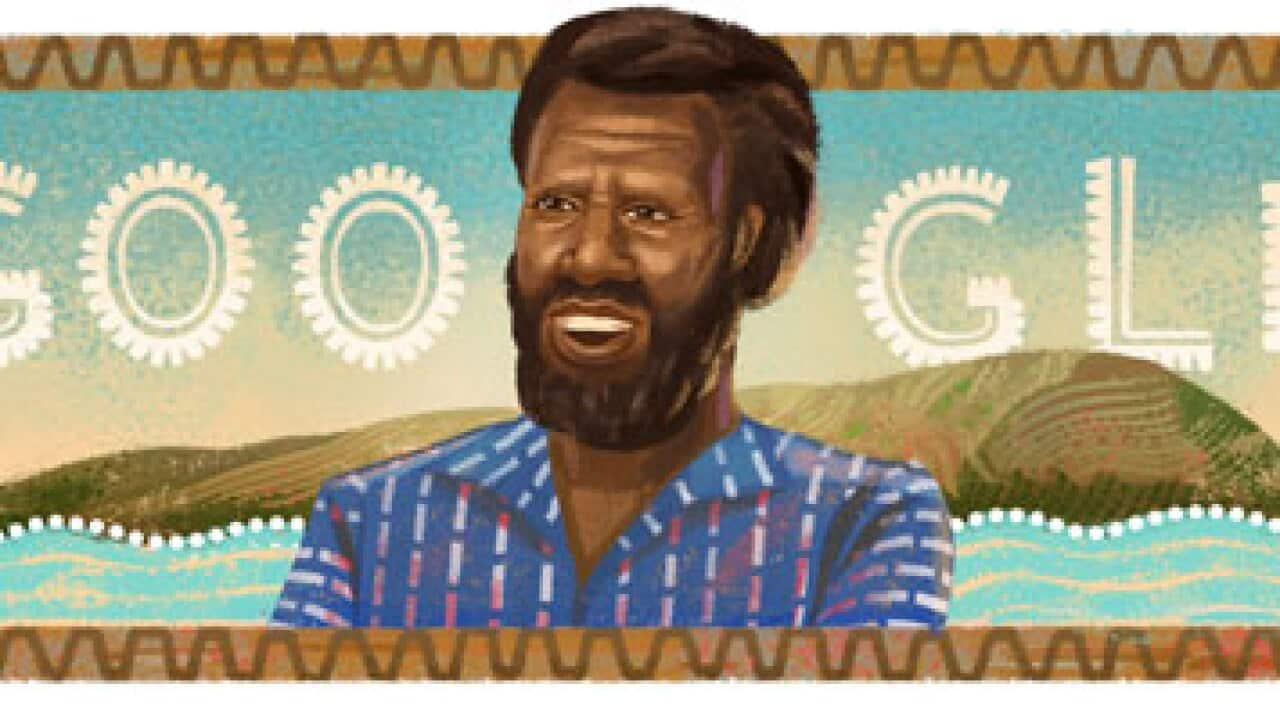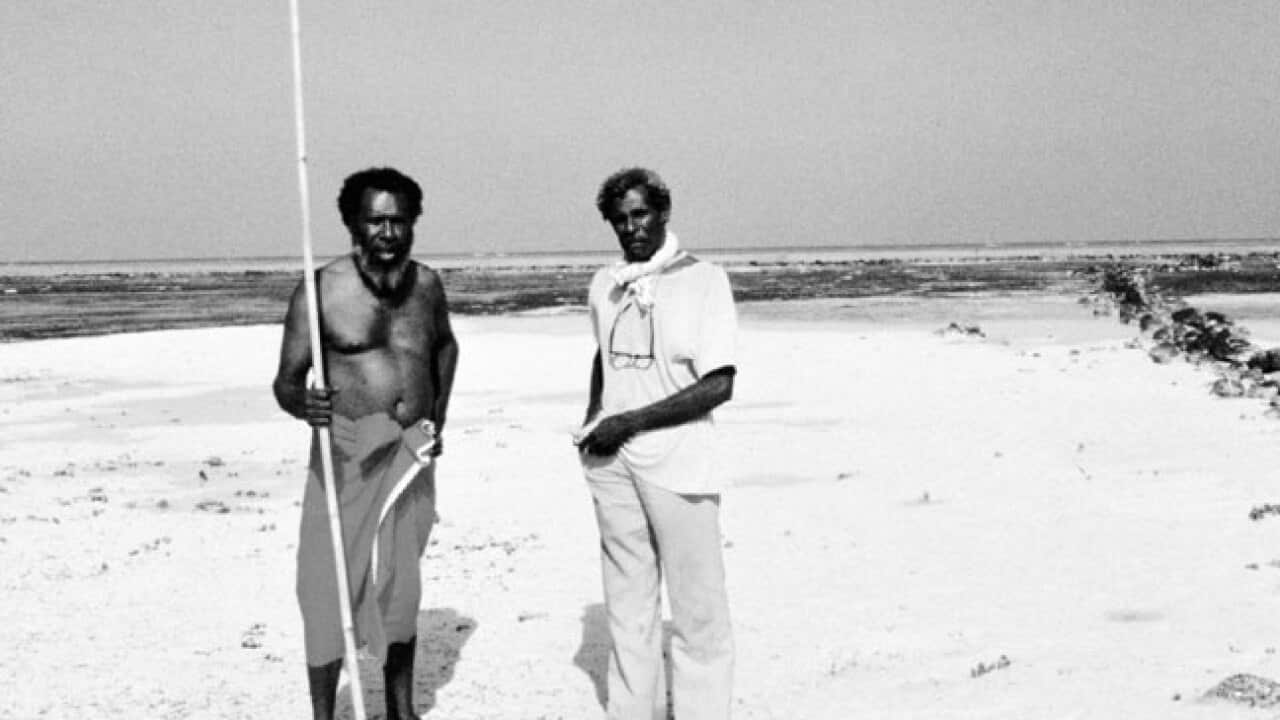Believing in the impossible is really what leads us to where we get to in life. And if we can, share some of those secrets about believing in the impossible.
We are going to listen to a little bit of a story of one man who believed in the impossible.
In 1982 Eddie Koiki Mabo, a Meriam man from Murray Island in the Torres Straits, along with Reverend David Passi, Celuia Mapoo Salee, Sam Passi and James Rice - said No.
No, to being an uncomfortable truth.
No to being told that it was impossible to prove they had rights well before European arrival.
It takes a spiritual nature to pursue peace through such conflict.
These courageous people didn't want to be reassured with numbing advice that all legal options were impossible.
So they dared to challenge the centuries-old doctrine of Terra Nullius – a land that belonged to no one.
It was a decade-long legal battle. On 3rd June 1992, the High Court of Australia decided in favour of Eddie Koiki Mabo and his fellow plaintiffs.
On 3rd June 1992, the High Court of Australia decided in favour of Eddie Koiki Mabo and his fellow plaintiffs.

Eddie Mabo with lawyers Source: SBS
Like any family, there is no doubt division in Eddie Mabo’s family and in his clan groups in the islands. Divisions not least of which centred on the authority to make decisions, about everyday life on Murray Island, or about who could hunt where for the food. Or whose role it was to take the lead in ceremonies sacred to their people. It was a pretty normal kind of life.
It is human nature to have conflict.
It takes a spiritual nature to pursue peace through such conflict.
There was friction in the understanding of legal doctrine, and further separation of whose legal advice was the better to follow. Who could interpret the law in such a way as to dare challenge this doctrine?
Eddie Koiki Mabo died six months before that decision came down. The High Court decision came down in June 1992.
The challenge and win in the high court resulted in the Native Title Act.
It is the uncomfortable truth of black and white Australia. It is the uncomfortable truth that white Australia has a black history, and very much a living present.
The very Act that Merv (Eades) referred to this evening, at the National Indigenous Human Rights Awards, and Jeff, that we are debating in the Senate. The debating is all about the amendments to what you have heard this evening in terms of an extraordinary win by a family of Noongars in WA. Their legal right to challenge came about because of Eddie Mabo. Their legal right to say no came about because of Eddie Mabo. So the struggle and discernment that we hear in this parliament, the house of the people need to have, is a deeper understanding of why it is that this Act is before the parliament.
Who does it benefit? What is the change? Who else will benefit? Who will lose? Why are we amending the Act? Does it need amending?
These are the questions that we as political members of the parliament must ask. We may not like to as those questions, and we may not want to ask those questions, but that is why we put our hands up and said we want to represent. And that means taking the good with the bad. It means standing in those uncomfortable moments, in those uncomfortable decisions. But, I do believe he spirit of Gail Mabo’s Dad, is right here in this parliament. If I could share with you the stories of how even to this point. Since the McGlade decision in February, something has been moving in this parliament, a really strong sense of spirit. Where a piece of legislation, that was rushed through the House of Representatives, one day without warning, didn’t happen. It couldn’t be rushed through.
If I could share with you the stories of how even to this point. Since the McGlade decision in February, something has been moving in this parliament, a really strong sense of spirit. Where a piece of legislation, that was rushed through the House of Representatives, one day without warning, didn’t happen. It couldn’t be rushed through.

Source: Supplied
Labor said no.
Then there were further conversations about what is going on here, why is this happening?
Labor insisted that it went to a Senate Inquiry, which is the appropriate process of examination of any act of Parliament, which is what we are here to do. From the Senate Inquiry came an outcome, over sixty submissions to the inquiry, an inquiry led by an incredibly experienced practitioner of Land Rights in my view, and certainly in the view of those that know him, as you would, Senator Pat Dodson.
We have to listen to everyone.
It is incredibly complex because Native Title is complex. It is the uncomfortable truth of black and white Australia. It is the uncomfortable truth that white Australia has a black history, and very much a living present.
When the Inquiry completed its findings, it was Labor that narrowed down to make sure that extinguishment was not a part of any steps forward.
It is Senator Pat Dodson who has advocated vehemently and taken the lead to make sure that extinguishment of the rights of the First Peoples of this country does never happen. The spirit of Mr Mabo floats through here. I believe, in this parliament at a really important time.
The spirit of Mr Mabo floats through here. I believe, in this parliament at a really important time.

Indigenous leader and Labor Senator Pat Dodson Source: AAP
The phone rings in my office, in Linda’s office, Pat’s office and I am sure in many of my colleagues of Labor party offices as much as it does in the Government offices.
The phone should ring, and people should listen because those calls are important calls coming from around the nation. It is bigger than Noongar people. This amendments impact over 120 Indigenous Land Use Agreements, We have to examine those land use agreements, we have to listen to the Native Title applicants and claimants from right across the country. As comfortable as it would be to listen to one group, we know that is not what we are here to do. We have to listen to everyone.
I ask each and every one of you to send your strong spirits and goodwill to those of us in there who are trying to discern the best way forward, not just for one group of people but for all people, that your spirits will help us guide through that process.














